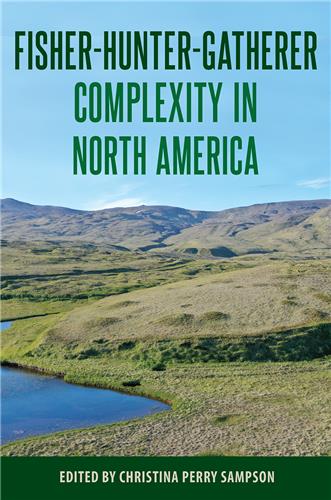Focusing on small-scale societies in saltwater environments, this volume explores the development of seafaring technology and examines how watercraft have served as groundbreaking innovations throughout human history.
Buy Books: browse by author
Books by VICTOR D. THOMPSONPlease note that while you may order forthcoming books at any time, they will not be available for shipment until shortly before publication date
This volume explores the impacts humans have made on island and coastal ecosystems and the ways these environments have adapted to anthropogenic changes over the course of millennia.
This book explores the forms and trajectories of social complexity among fisher-hunter-gatherers who lived in coastal, estuarine, and riverine settings in pre-Columbian North America.
This volume uses case studies to capture the recent emphasis on history in archaeological reconstructions of America’s deep past, representing a profound shift in thinking about precolonial and colonial history and helping to erase the false divide between ancient and contemporary America.
Most research into humans' impact on the environment has focused on large-scale societies; a corollary assumption has been that small scale economies are sustainable and in harmony with nature. The contributors to this volume challenge this notion, revealing how such communities shaped their environment--and not always in a positive way.
The emergence of village societies out of hunter-gatherer groups profoundly transformed social relations in every part of the world where such communities formed. Drawing on the latest archaeological and historical evidence, this volume explores the development of villages in eastern North America from the Late Archaic period to the eighteenth century.
This volume explores how Native peoples of the Southeastern United States cooperated to form large and permanent early villages using the site of Crystal River on Florida’s Gulf Coast as a case study.
Tracing evidence of mind-altering substances across a diverse range of ancient cultures, this collection explores how and why past civilizations harvested, manufactured, and consumed drugs. Case studies examine the use of stimulants, narcotics, and depressants by hunter-gatherers who roamed Africa and Eurasia, prehistoric communities in North and South America, and Maya kings and queens.
Colonized Bodies, Worlds Transformed represents a new generation of contact and colonialism studies, expanding upon a traditional focus on the health of conquered peoples toward how extraordinary biological and political transformations are incorporated into the human body, reflecting behavior, identity, and adaptation. These globally diverse case studies demonstrate that the effects of conquest reach farther than was ever thought before--to both the colonized and the colonizers.










